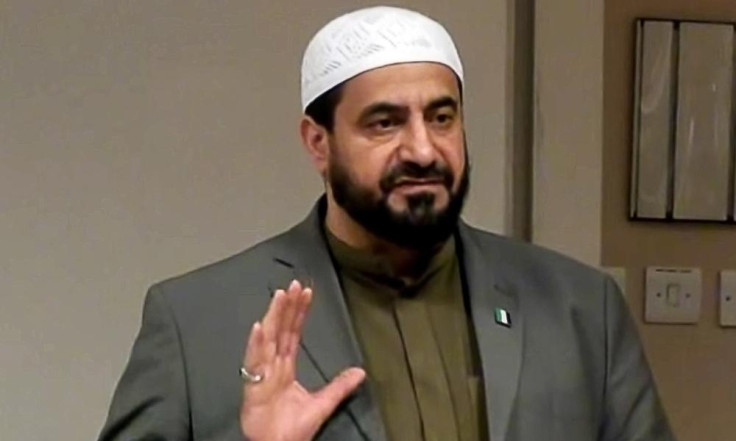Abdul Hadi Arwani: Fellow activists claim murdered Assad critic had no extremist views

Associates of a London imam found murdered in Wembley on Tuesday (7 April) have described him as a well known moderate, implacable in his opposition both to jihadist group Isis and the Assad regime in Syria.
Abdul Hadi Arwani, 48, was found dead in a Volkwagen Passat with gunshot wounds to the chest, at 11.15 am. An air ambulance was called, but Arwani was pronounced dead at the scene.
Reports have claimed that Arwani was forced to resign as imam of the An-Noor Mosque in Acton, west London over its alleged links to extremism, but friends and fellow activists have dismissed the claims.
Fellow anti-Assad activist Khaled Kamaraldin, who claimed to have been friends with Arwani for three years, said that Arwani was in a financial dispute with mosque authorities, which had led to his resignation.
The 55-year-old said that Arwani was a well-known face at anti-Assad opposition rallies, and denounced both the Syrian regime and extremist group Isis in his sermons.
"He was respected – he was a humble man, the sort of person who never believed in violence," said Kamaraldin.
"He opposed the Syrian regime. He opposed Isil [alternatively known as Isis] as well. His views were well known and clear about Isil. He preached against Isil, I had a discussion with him about it personally. I asked is Isil Islamic? And he said 'no'," said Kamaraldin.
Arwani, a father of six, fled Hama in Syria in the 1980s for Jordan, and left for the UK in 1996, setting up a building business.
Kamaraldin said that Arwani had great respect for his adopted home.
"He used to say, you have to live by the law of the land."
Hama is the site of a notorious 1982 massacre, where up to 40,000 civilians were killed by the Syrian Army under the orders of Hafez al-Assad, the father of the current president.
Kamaraldin claimed that Arwani was expelled from Jordan because he was at the time a member of the Muslim Brotherhood, a political Islamist movement.
According to the London College of Islamic Studies, he had studied at the Faculty of Sharia in Jordan, and was a teacher at various Islamic seminaries in Slough and West London.
Mohammed Kozbar of the Finsbury Park Mosque, said that Arwani was a longstanding opponent of the Syrian regime, well known for his community work: "He opposed the regime in the media, he was active in showing this opposition through speeches and demonstrations and others," he said.
"He is very inspirational. The youth were inspired by him, he has done very good work with young people, keeping them away from extremism, as well as opposing the regime he always criticised extremism and terrorism in Syria, especially Daesh, or Isis, and others," he said.
Arwani had ties with the National Coalition for Syrian Revolutionary and Opposition Forces, an alliance of moderate and secular groups opposed to the Assad regime.
Spokesman Nebal Istanbuly said Arwani had attended numerous functions held by the organisation to protest against the Assad regime, and had been scheduled to speak at a Hyde park rally held by the coalition in September 2013, but had been unable to attend.
"He was a friend of ours, and was well known to the Syrian diaspora in the UK," said Istanbuly.
He claimed that Arwani could have been targetted by the Syrian regime because of his opposition to Assad.
Others cast doubt on the view that the Assad government was behind the killing.
Haras Rafiq, managing director of counter-extremism think-tank the Quilliam Foundation told the London Evening Standard: "There will be a lot of Assad supporters in Syria who will be very happy, but he wasn't a big fish in the anti-Assad movement who would be targeted. He was part of a movement but not a figurehead."
The Metropolitan Police said it is retaining an "open mind" as regards the motive for the killing, and has appealed for witnesses to come forward.
© Copyright IBTimes 2025. All rights reserved.




















